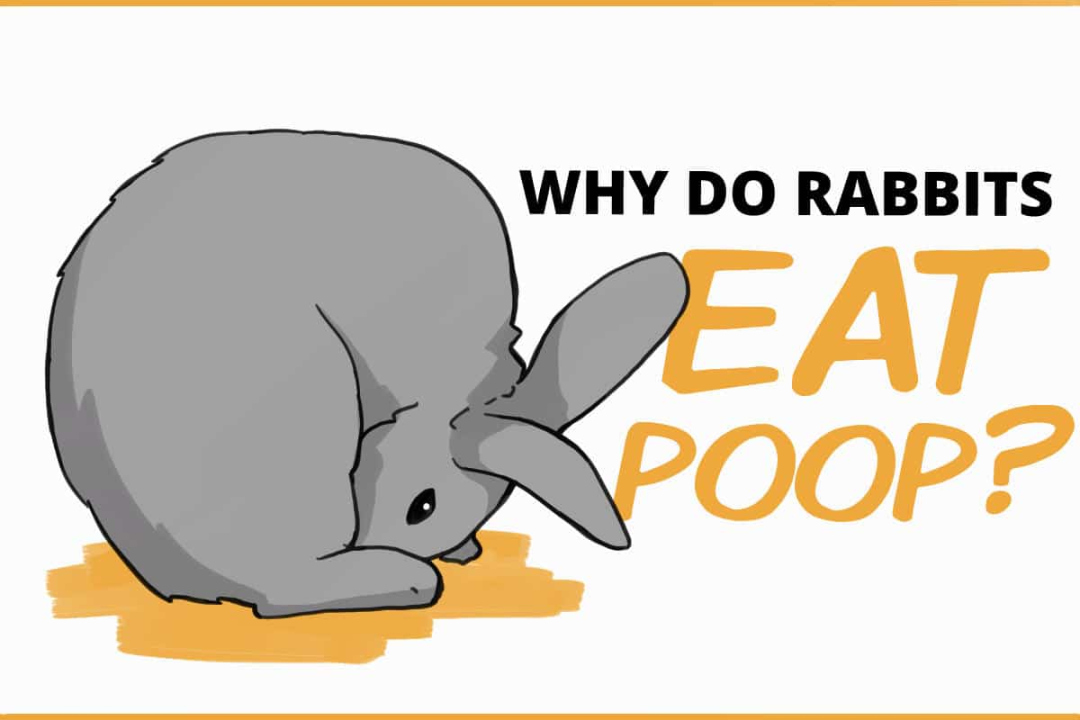How Often Do Rabbits Eat Their Poop?
Rabbits are known for their unique digestive system, which involves eating their feces. This behavior, known as coprophagy, is a normal and essential part of a rabbit’s digestive process. It may sound strange to us as humans, but for rabbits, it serves a vital purpose.

Why Do Rabbits Eat Their Poop?
Rabbits are hindgut fermenters, which means their digestive system is specifically designed to extract as many nutrients as possible from their food. When a rabbit initially ingests their food, it goes through the stomach and small intestine, just like any other animal. However, the unique part comes when the partially digested food, known as cecotropes or night feces, enters the cecum, a specialized organ in the digestive tract.
The Role of Cecotropes
The cecum is responsible for breaking down fibrous materials, such as plant fibers, that the rabbit’s stomach and small intestine aren’t able to fully digest on its own. Within the cecum, beneficial bacteria ferment these fibrous materials, breaking them down into a more digestible form. The result is the production of soft cecotropes, which are rich in essential nutrients and vitamins.
Instead of being excreted like normal feces, cecotropes are expelled through the rabbit’s anus and quickly consumed directly from the source. This process allows rabbits to fully digest and extract the maximum amount of nutrients from their food.
Nutritional Benefits of Cecotropes
Cecotropes contain a high concentration of vitamins, minerals, and beneficial bacteria that are vital for a rabbit’s overall health. By consuming these soft pellets, rabbits can effectively absorb these essential nutrients, such as vitamin B-complex and vitamin K, which are produced by the bacteria within the cecum. This process ensures that rabbits receive optimal nutrition from their diet.
How Often Do Rabbits Eat Their Poop?
Rabbits typically produce cecotropes during the night and early morning hours, so you may not always witness this behavior. The frequency of a rabbit eating their cecotropes can vary depending on various factors:
- Diet: A rabbit’s diet plays a significant role in the frequency of cecotrope consumption. High-fiber diets, including hay and fresh greens, stimulate the cecum to produce more cecotropes. Therefore, rabbits on a healthy, balanced diet will eat their cecotropes more frequently.
- Age: Young rabbits tend to eat their cecotropes more often than adult rabbits. As they grow, their digestive system becomes more efficient, and they may consume cecotropes less frequently.
- Health: If a rabbit is experiencing digestive issues or an imbalanced diet, they may eat their cecotropes more often to compensate for the lack of nutrients or to aid in digestion.
Frequently Asked Questions (FAQs)
1. Is it normal for rabbits to eat their poop?
Yes, it is entirely normal for rabbits to eat their cecotropes. It is a natural behavior that is vital for their digestion and overall health. However, rabbits do not eat their regular feces, only the soft, nutrient-rich cecotropes.
2. Can I prevent my rabbit from eating their poop?
It is not recommended to prevent your rabbit from eating their cecotropes. This behavior is essential for their well-being. However, if you notice your rabbit eating their regular feces, known as hard pellets, it could be a sign of an underlying health issue, and you should consult a veterinarian.
3. Will my rabbit always eat their cecotropes?
Yes, rabbits will continue to eat their cecotropes throughout their life. However, the frequency may vary depending on factors such as diet, age, and health.
4. How can I ensure my rabbit has a healthy digestive system?
To promote a healthy digestive system in your rabbit, provide a balanced diet consisting of unlimited hay, fresh vegetables, and a small amount of high-quality pellets. Avoid sudden changes in diet, as it can disrupt their digestive process. Regular veterinary check-ups are also essential to monitor your rabbit’s overall health.
Eating their cecotropes is a natural and necessary behavior for rabbits. By consuming these soft, nutrient-rich pellets, rabbits can fully extract essential vitamins and nutrients from their diet. While it may seem peculiar to us, it is an integral part of their digestive system. Understanding and supporting this behavior is crucial for the overall health and well-being of rabbits.
Related Articles…
Copyright Notice:
All images on this website are obtained from the internet and remain copyrighted to their original owners. If you hold copyright to any image and want it taken down, please reach us.